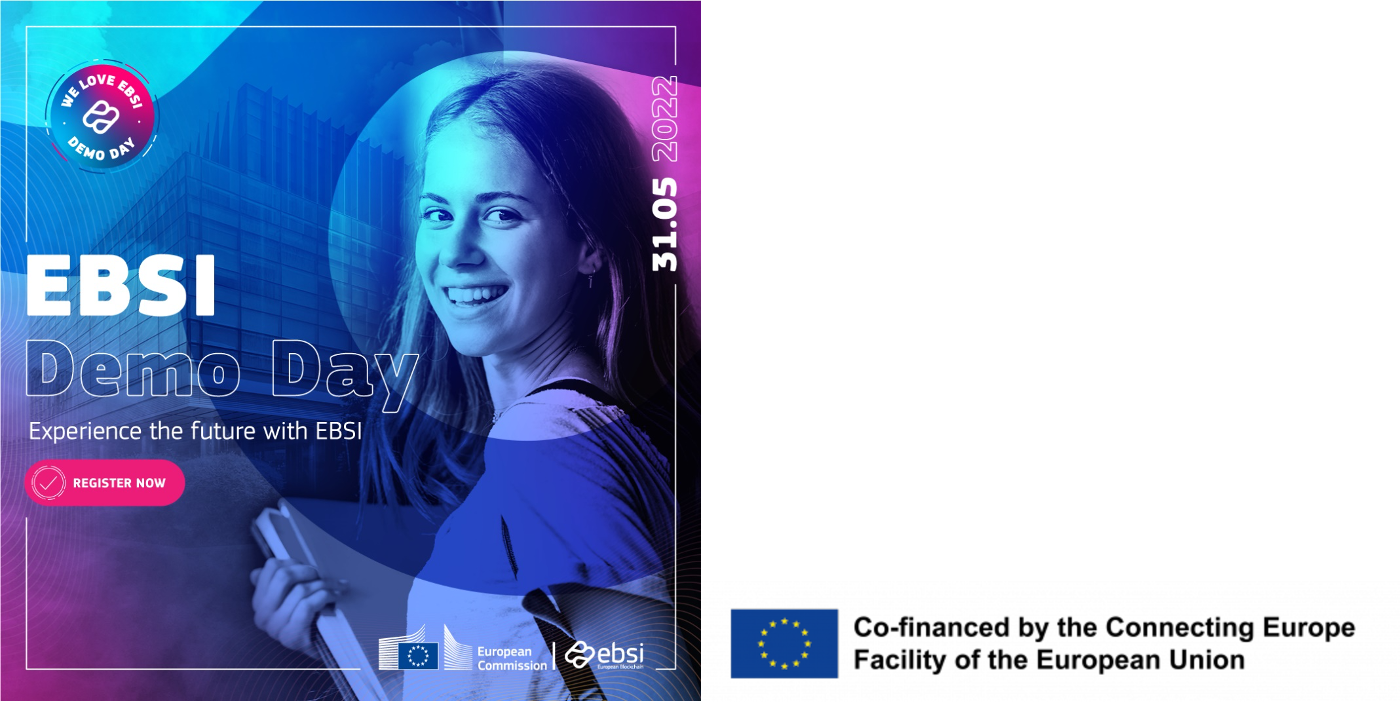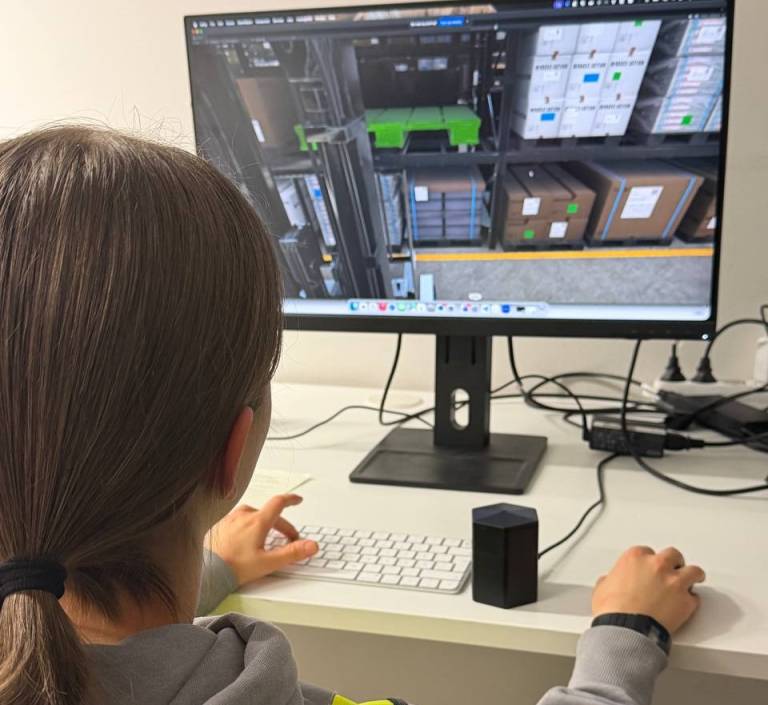About a year ago our unit together with the Information and Knowledge Management Unit started work on the MicroBlock research project. The aim of the project is to investigate the use of educational micro-credentials in the European Blockchain Services Infrastructure (EBSI). EBSI is a European wide initiative to create a platform for enabling convenient cross-border use cases related to public administration. Blockchain technology is used to ensure trust and make the system decentralized where there is no single central authority running and managing the system. This seems a good fit for the EU where a centrally managed system might not be politically possible. EBSI is administered by the European Blockchain Partnership (EBP) which consists of all the EU countries, Norway and Liechtenstein. EBP members can then host EBSI nodes that run the EBSI blockchain and related services. In fact, one of the tasks of the MicroBlock project was to deploy the first EBSI node in Finland for EBSI’s preproduction environment. After some missteps and technical difficulties, we managed to deploy the EBSI node into CSC’s cPouta OpenStack cloud environment last September.
One of the key uses for EBSI are verifiable credentials. They are documents stating some information about a person or organization, that computers can easily interpret and verify. A credential can be for example a verifiable id containing the person’s name, date of birth and citizenship information issued by a government or a verifiable diploma containing information about the person’s educational achievements issued by a university. Users can store credentials they have requested from different parties into their EBSI compliant wallet which allows the user themselves control over their data. This wallet can be, for example, a mobile phone app which stores all the user’s credentials in the phone, so they really are in the control of the user. When the user then needs to prove something about themselves to another party such as that they have a master’s degree, they can present their credential to that party. This party can then automatically verify that it was indeed issued to the person who presented it, that the issuer is authorized to issue such credentials and that the credential is exactly the one the issuer issued, i.e., it has not been changed in any way. To enable all this technically EBSI uses public private key cryptography and blockchain based registries about the issuers and credential holders.
In regard to these verifiable credentials, our project’s interest is in educational micro-credentials. These credentials cover smaller educational achievements unlike traditional diplomas such as a master’s degree. So, for example, a student can get a credential for a single course they have completed. For these credentials EBSI uses the European Digital Credentials for Learning data model that allows us to add more detailed information about a course than a traditional transcript of records contains. In each credential, basic information like description of the course, language it is taught in, number of ECTS or number of hours of workload and grade is available. Apart from that, specific learning outcomes from the course, activities done as part of the course and any other assessments are also included. What also makes these credentials more valuable is – along with learning outcomes for each course, a short list of skills and competences (domain specific, transversal skills, language skills) are also listed. These skills and competences are derived from the European Skills/Competences, Qualifications and Occupations (ESCO) framework. With all this information it is possible for a student to keep a track of the various skills they have acquired during their studies and also to spot areas that need improvement.
One practical use case for these kind of micro-credentials could be the ECIU university. ECIU is a consortium of 13 European universities and Tampere University belongs to ECIU. ECIU university offers challenge-based learning opportunities and micro-modules to students. Many of these modules and challenges come from partner institutions curriculums and are co-created between partner institutions as well as public and private institutions. After completion of such learning activities, students are given a digital credential that contains the proof of the competences they developed during the activity for which EBSI verifiable credentials could be used for.
We have been participating in EBSI’s early adopters program which has given us an opportunity to try all the above described in practice as a part of the multi-university cross-border pilot. In this pilot the idea is that participating universities and other organizations will build demos where the verifiable credential issuance, presentation and verification happens between different countries thus show casing one of the main points of EBSI.
We partnered with the DLTnode project from Lithuania which includes Kaunas University of Technology (KTU) who are also an ECIU member university. Together we are building a demo for a cross-border micro-credential scenario. Due to GDRP issues, the demo will not yet include actual student data. Instead, the demo is implemented around an imaginary PhD student at our university named Anna who lives in a world where EBSI is widely used. Anna wants to take a course offered by KTU, which requires some prerequisite knowledge. From Tampere University system she can get a verifiable student id she uses to prove to the KTU system that she comes from an ECIU partner university. One of the courses she has taken in our university meets the prerequisites for the KTU course, so she can use a micro-credential for that course to prove she has the prerequisite knowledge. After completing the KTU course, she gets a micro-credential she can present to the Tampere University system which adds the course to her study record. We built our demo using and adapting open source components from walt.id which is a company specializing in identity and trust in the web. Our demo consists of a web wallet and demo student portals for Tampere University and KTU. The source code of our part of the demo is available in our GitHub organization.
We will be discussing our pilot and presenting our demo as part of the EBSI demo day on Tuesday 31st of this month. The event includes an introduction to EBSI, 6 demos including ours and a panel discussion. Registration to this online event is open, so if you found this interesting and want to learn more about our demo or EBSI in general you can participate to the event.
Watch the demo:
Read more about our EBSI experience from here: https://ec.europa.eu/digital-building-blocks/wikis/display/EBSI/Micro-credentials
Text by Otto Hylli






